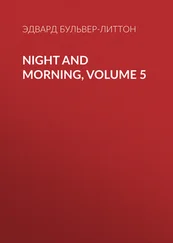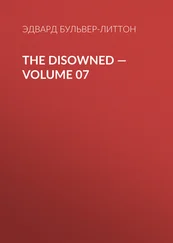Эдвард Бульвер-Литтон - What Will He Do with It? — Volume 07
Здесь есть возможность читать онлайн «Эдвард Бульвер-Литтон - What Will He Do with It? — Volume 07» — ознакомительный отрывок электронной книги совершенно бесплатно, а после прочтения отрывка купить полную версию. В некоторых случаях можно слушать аудио, скачать через торрент в формате fb2 и присутствует краткое содержание. Жанр: foreign_prose, literature_19, Европейская старинная литература, foreign_antique, на английском языке. Описание произведения, (предисловие) а так же отзывы посетителей доступны на портале библиотеки ЛибКат.
- Название:What Will He Do with It? — Volume 07
- Автор:
- Жанр:
- Год:неизвестен
- ISBN:нет данных
- Рейтинг книги:5 / 5. Голосов: 1
-
Избранное:Добавить в избранное
- Отзывы:
-
Ваша оценка:
- 100
- 1
- 2
- 3
- 4
- 5
What Will He Do with It? — Volume 07: краткое содержание, описание и аннотация
Предлагаем к чтению аннотацию, описание, краткое содержание или предисловие (зависит от того, что написал сам автор книги «What Will He Do with It? — Volume 07»). Если вы не нашли необходимую информацию о книге — напишите в комментариях, мы постараемся отыскать её.
What Will He Do with It? — Volume 07 — читать онлайн ознакомительный отрывок
Ниже представлен текст книги, разбитый по страницам. Система сохранения места последней прочитанной страницы, позволяет с удобством читать онлайн бесплатно книгу «What Will He Do with It? — Volume 07», без необходимости каждый раз заново искать на чём Вы остановились. Поставьте закладку, и сможете в любой момент перейти на страницу, на которой закончили чтение.
Интервал:
Закладка:
Not that Mrs. Haughton honestly designed, nor even wished to draw the young man from the dazzling vortex of high life into her own little currents of dissipation. She was much too proud of Lionel to think that her friends were grand enough for him to honour their houses by his presence. She had in this, too, a lively recollection of her lost Captain's doctrinal views of the great world's creed. The Captain had flourished in the time when Impertinence, installed by Brummell, though her influence was waning, still schooled her oligarchs, and maintained the etiquette of her court; and even when his /misalliance/ and his debts had cast him out of his native sphere, he lost not all the original brightness of an exclusive. In moments of connubial confidence, when owning his past errors, and tracing to his sympathising Jessie the causes of his decline, he would say: "'Tis not a man's birth, nor his fortune, that gives him his place in society—it depends on his conduct, Jessie. He must not be seen bowing to snobs, nor should his enemies track him to the haunts of vulgarians. I date my fall in life to dining with a horrid man who lent me L100, and lived in Upper Baker Street. His wife took my arm from a place they called a drawing-room (the Captain as he spoke was on a fourth floor), to share some unknown food which they called a dinner (the Captain at that moment would have welcomed a rasher). The woman went about blabbing—the thing got wind—for the first time my character received a soil. What is a man without character! and character once sullied, Jessie, man becomes reckless. Teach my boy to beware of the first false step—no association with parvenus. Don't cry, Jessie— I don't mean that he is to cut your—relations are quite different from other people—nothing so low as cutting relations. I continued, for instance, to visit Guy Darrell, though he lived at the back of Holborn, and I actually saw him once in brown beaver gloves. But he was a relation. I have even dined at his house, and met odd people there— people who lived also at the back of Holborn. But he did not ask me to go to their houses, and if he had, I must have cut him." By reminiscences of this kind of talk, Lionel was saved from any design of Mrs. Haughton's to attract his orbit into the circle within which she herself moved. He must come to the parties she gave—illumine or awe odd people there. That was a proper tribute to maternal pride. But had they asked him to their parties, she would have been the first to resent such a liberty.
Lionel found Mrs. Haughton in great bustle. A gardener's cart was before the street door. Men were bringing in a grove of evergreens, intended to border the staircase, and make its exiguous ascent still more difficult. The refreshments were already laid out in the dining-room. Mrs. Haughton, with scissors in hand, was cutting flowers to fill the eperyne, but darting to and fro, like a dragonfly, from the dining-room to the hall, from the flowers to the evergreens.
"Dear me, Lionel, is that you? Just tell me, you who go to all those grandees, whether the ratafia-cakes should be opposite to the spauge- cakes, or whether they would not go better—thus—at cross-corners?"
"My dear mother, I never observed—I don't know. But make haste-take off that apron-have those doors shut come upstairs. Mr. Darrell will be here very shortly. I have ridden on to prepare you."
"Mr. Darrell—TO-DAY—HOW could you let him come? Oh, Lionel, how thoughtless you are! You should have some respect for your mother—I am your mother, sir."
"Yes, my own dear mother—don't scold—I could not help it. He is so engaged, so sought after; if I had put him off to-day, he might never have come, and—"
"Never have come! Who is Mr. Darrell, to give himself such airs?—Only a lawyer after all," said Mrs. Haughton, with majesty.
"Oh, mother, that speech is not like you. He is our benefactor—our—"
"Don't, don't say very more—I was very wrong—quite wicked—only my temper, Lionel dear. Good Mr. Darrell! I shall be so happy to see him— see him, too, in this house that I owe to him—see him by your side! I think I shall fall down on my knees to him."
And her eyes began to stream.
Lionel kissed the tears away fondly. "That's my own mother now indeed— now I am proud of you, mother; and how well you look! I am proud of that too."
"Look well—I am not fit to be seen, this figure—though perhaps an elderly quiet gentleman like good Mr. Darrell does not notice ladies much. John, John, makes haste with those plants. Gracious me! you've got your coat off!—put it on—I expect a gentleman—I'm at home, in the front drawing-room—no—that's all set out—the back drawing-room, John. Send Susan to me. Lionel, do just look at the supper-table; and what is to be done with the flowers, and—"
The rest of Mrs. Haughton's voice, owing to the rapidity of her ascent, which affected the distinctness of her utterance, was lost in air. She vanished at culminating point—within her chamber.
CHAPTER III
MRS. HAUGHTON AT HOME TO GUY DARRELL.
Thanks to Lionel's activity, the hall was disencumbered—the plants hastily stowed away-the parlour closed on the festive preparations—and the footman in his livery waiting at the door—when Mr. Darrell arrived. Lionel himself came out and welcomed his benefactor's footstep across the threshold of the home which the generous man had provided for the widow.
If Lionel had some secret misgivings as to the result of this interview, they were soon and most happily dispelled. For, at the sight of Guy Darrell leaning so affectionately on her son's arm, Mrs. Haughton mechanically gave herself up to the impulse of her own warm, grateful, true woman's heart. And her bound forward, her seizure of Darrell's hand—her first fervent blessing—her after words, simple but eloquent with feeling—made that heart so transparent, that Darrell looked it through with respectful eyes.
Mrs. Haughton was still a pretty woman, and with much of that delicacy of form and outline which constitutes the gentility of person. She had a sweet voice too, except when angry. Her defects of education, of temper, or of conventional polish, were not discernible in the overflow of natural emotion. Darrell had come resolved to be released if possible. Pleased he was, much more than he had expected. He even inly accepted for the deceased Captain excuses which he had never before admitted to himself. The linen-draper's daughter was no coarse presuming dowdy, and in her candid rush of gratitude there was not that underbred servility which Darrell had thought perceptible in her epistolary compositions. There was elegance too, void both of gaudy ostentation and penurious thrift, in the furniture and arrangements of the room. The income he gave to her was not spent with slatternly waste or on tawdry gewgaws. To ladies in general, Darrell's manner was extremely attractive—not the less winning because of a certain shyness which, implying respect for those he addressed, and a modest undervaluing of his own merit, conveyed compliment and soothed self-love. And to that lady in especial such gentle shyness was the happiest good-breeding.
In short, all went off without a hitch, till, as Darrell was taking leave, Mrs. Haughton was reminded by some evil genius of her evening party, and her very gratitude, longing for some opportunity to requite obligation, prompted her to invite the kind man to whom the facility of giving parties was justly due. She had never realised to herself, despite all that Lionel could say, the idea of Darrell's station in the world—a lawyer who had spent his youth at the back of Holborn, whom the stylish Captain had deemed it a condescension not to cut, might indeed become very rich; but he could never be the fashion. "Poor man," she thought, "he must be very lonely. He is not, like Lionel, a young dancing man. A quiet little party, with people of his own early rank and habits, would be more in his way than those grand places to which Lionel goes. I can but ask him—I ought to ask him. What would he say if I did not ask him? Black ingratitude indeed, if he were not asked!" All these ideas rushed through her mind in a breath, and as she clasped Darrell's extended hand in both her own, she said: "I have a little party to- night!"—and paused. Darrell remaining mute, and Lionel not suspecting what was to ensue, she continued: "There may be some good music—young friends of mine—sing charmingly—Italians!"
Читать дальшеИнтервал:
Закладка:
Похожие книги на «What Will He Do with It? — Volume 07»
Представляем Вашему вниманию похожие книги на «What Will He Do with It? — Volume 07» списком для выбора. Мы отобрали схожую по названию и смыслу литературу в надежде предоставить читателям больше вариантов отыскать новые, интересные, ещё непрочитанные произведения.
Обсуждение, отзывы о книге «What Will He Do with It? — Volume 07» и просто собственные мнения читателей. Оставьте ваши комментарии, напишите, что Вы думаете о произведении, его смысле или главных героях. Укажите что конкретно понравилось, а что нет, и почему Вы так считаете.












